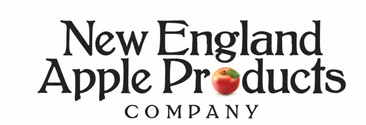New England Apple Products – A new company with a 150 year history . . .
New England Apple Products Company came into being in the summer of 2011, but its roots run back to the end of the Civil War. Our owners, brothers Steve and Dave Rowse, grew up in their family’s business, Veryfine Products Inc. of Littleton, Mass; Veryfine traced its roots back to 1865, when what was then known as Standard Vinegar Works commenced operations in Somerville, Mass.
In the summer of 2011, Steve purchased the fresh apple cider-making business from Carlson Orchards of Harvard, Mass. Dave joined Steve in the business a couple of years later. The Carlson brothers, Franklyn, Robert, and Bruce, had built their orchard-based cider business from humble beginnings in the 1980’s to the point where the farm’s infrastructure could no longer support its growth. Still marketed under the Carlson Orchards brand name, New England Apple’s cider can be found in retail grocery stores, foodservice locations, and farm stands across the Northeast. A second brand, Rudy’s Blend, honoring Rudy Hetnar of Hetnar Orchards, once a large family apple farm in Epping, NH, is sold in grocery stores as well. And a third brand, Lyman Orchards Cider, is also produced and marketed by the company, mostly in Connecticut and metro NY City.
New England Apple presses apples and bottles cider all year long, and also produces high quality “gourmet” lemonades that the Carlson first introduced, offering them in the summer months.
Timeline
- Connector.
1865
Michael Durant starts Standard Vinegar Works in Somerville, Mass., a suburb of Boston.
- Connector.
1890’s
Steve & Dave’s great-grandfather, Arthur Rowse, joins Standard as a salesman; in 1900, Arthur becomes sole owner and within a few years has renamed the company New England Vinegar Works.
- Connector.
1930
Arthur purchases property that includes a cider mill near Harwood Station in Littleton, Mass and begins to move the vinegar works to that site. Littleton sits in the middle of the Nashoba Valley, then a major apple growing area about 30 miles west of Boston.
- Connector.
1940's
Arthur’s widow Edith and youngest son James (Steve & Dave’s grandfather), are now running the company, and with apple juice as an unrationed product during World War II, grow the business and pull it out of Chapter 11 bankruptcy that was brought on by the economic distress of the Great Depression. The company name has been changed once again, to New England Apple Products Company, Inc.
- Connector.
1954
James replaces his hydraulic cider presses with screening centrifuges, a new technology that dramatically improves output. One of the by-products of this innovation was a new, smoother style of apple sauce; as family legend has it, frustrated one day by the thick apple mash that the centrifuges were producing, James turned to his second son David (Steve & Dave’s dad), and remarked “well, these machines seem to want to make apple sauce, not apple juice; maybe we should go into the apple sauce business!” By 1960, the company’s products included apple juice, apple sauce, cider and white vinegar, prune juice, and apricot nectar. James is awarded a US patent for the centrifuging process to make apple juice and sauce in 1963.
- Connector.
1972
James retires and David is promoted to president of New England Apple; over next couple of years, David experiments with a new single serve, prelabeled glass bottle for his line of fruit juices and drinks. After some market trial and error, this line of 10 oz. glass bottled fruit beverages becomes the first “New Age” beverage alternative to carbonated soft drinks.
- Connector.
1979
A new production building is built in Littleton, housing a state of the art bottling line for the small glass bottles that fills 1000 bottles per minute. The company’s single serve juice line expands nationally.
- Connector.
1980's
New single serve bottles and aluminum cans help drive Veryfine’s ability across the country and into vending machines. Steve joins the company full-time in 1983, and his three brothers follow.
- Connector.
1990's
With advances in bottle molding technology, the company, now Veryfine Products, Inc., begins to replace glass with shatterproof plastic bottles. The beverage giants, including the nation’s largest soft drink and juice companies, expand their portfolios to include single serve beverages, putting the competitive squeeze on Veryfine. As its juice sales decline and the company faces financial strain, it invents a new flavored spring water beverage called Fruit2O; sales again take off. Dave joins the family juice company in 1992.
- Connector.
2004
Recognizing that Fruit2O’s success would soon breed imitation from the beverage giants, the family, now led by Steve’s and Dave’s Uncle Sam, decides to sell the company; Kraft Foods acquires Veryfine at the end of March.
- Connector.
2011
Steve, a neighbor of Carlson Orchards in Harvard, agrees to purchase their cider-making business and move it to Leominster, Mass., only a few miles from the birthplace of John “Johnny Appleseed” Chapman. He adopts the abandoned “New England Apple Products” company name and begins cider production in September. With terrific support from the City of Leominster, and room to grow in its 34,000 square foot building, the company has already added a second cider press and additional bottling capacity.
